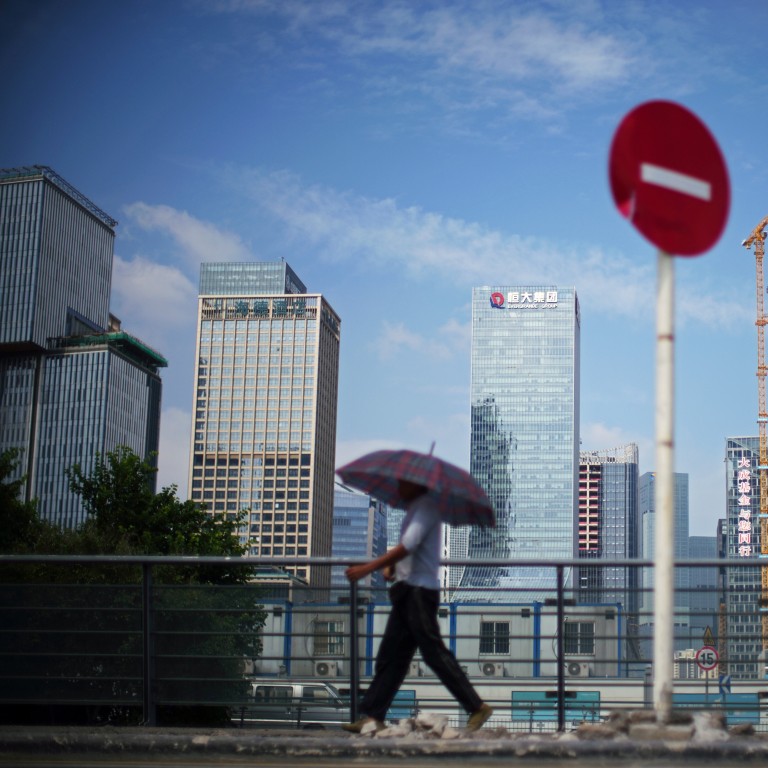
China Evergrande crisis casts shadow on Chinese real estate sector’s outstanding US$232 billion offshore bonds, Fitch says
- Together with Fantasia Holdings and Ronshine China, Evergrande has driven the bulk of the six downgrades that Fitch made during the third quarter in a portfolio of 50 major Asian high-yield corporate issuers
- Funding costs for such issuers had risen to 7.5 per cent as of the end of the third quarter, from 6.3 per cent in the second quarter
Investors in Chinese real estate sector bonds face a number of headwinds, with a potential default at China Evergrande Group and uncertainties linked to its US$11.9 billion bonds coming due in the next two years clouding the outlook for the sector’s outstanding US$232 billion cross-border bonds, Fitch Ratings said.
“Ongoing negative news concerning China Evergrande’s operations and potential default was the major contributor,” Fitch analysts Matt Jamieson and Buddhika Prasad Piyasena said in the report.
Together with Fantasia Holdings and Ronshine China, two other Chinese developers, it drove the bulk of the six downgrades that Fitch made during the third quarter in a portfolio of 50 major Asian high-yield corporate issuers, which were chosen on the basis of their relevance to the Asian credit market.
“We expect negative actions on the portfolio of 50 issuers to continue in the fourth quarter, with the Chinese real estate sector facing a number of headwinds,” Fitch said on Tuesday.
Chinese real estate sector cross-border bonds accounted for 79 per cent of Fitch’s portfolio of cross-border bonds, which are expected to total US$121 billion as of the end of 2021.

